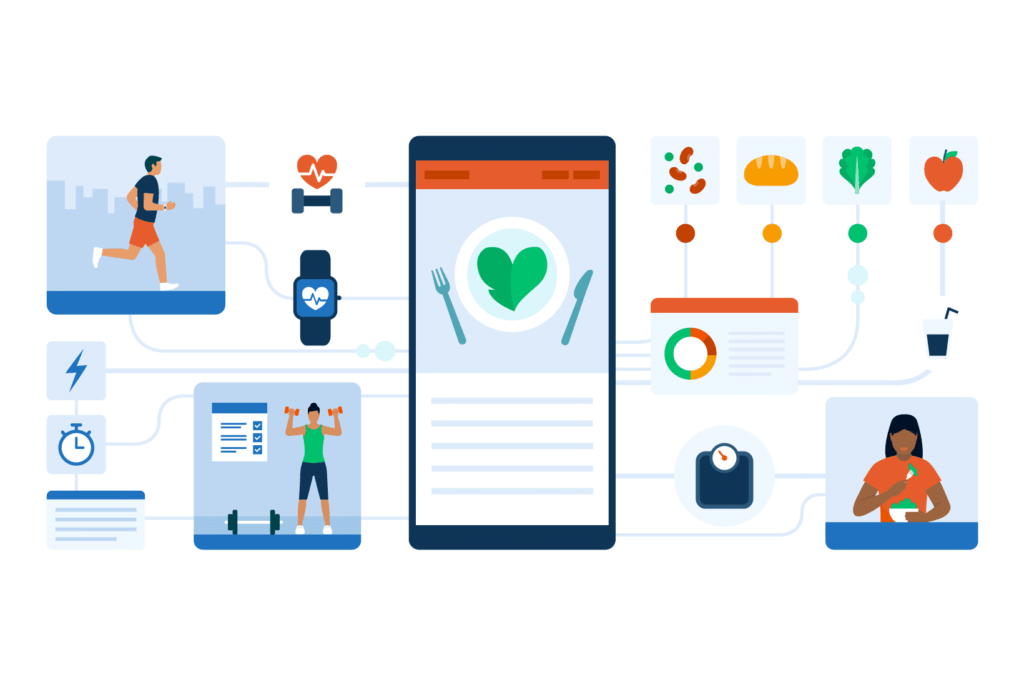Ever wondered how safe your health information is? With rising cyber threats, health information security has never been more critical. Enter blockchain technology—a game-changer in ensuring data security. Let’s dive into how blockchain is revolutionizing health information security.
Understanding Blockchain Technology
What is Blockchain?
At its core, blockchain is a digital ledger that records transactions across multiple computers. These records, known as blocks, are linked using cryptography, making the entire system highly secure.
Key Features of Blockchain
- Decentralization: Unlike traditional databases, blockchain is decentralized, meaning no single entity has control over the entire network.
- Immutability: Once data is recorded on the blockchain, it cannot be altered, ensuring data integrity.
- Transparency: Transactions on the blockchain are visible to all participants, enhancing trust.
Current Challenges in Health Information Security
Data Breaches and Cyber Attacks
Healthcare data breaches are alarmingly common, exposing sensitive patient information. Cyber attacks target centralized databases, leading to massive data losses.
Issues with Centralized Data Storage
Centralized storage systems are vulnerable to hacking. If a hacker gains access, they can exploit the entire system, compromising millions of records.
Regulatory Compliance Challenges
Healthcare organizations must comply with stringent regulations like HIPAA and GDPR. Meeting these standards with traditional systems can be challenging.
How Blockchain Enhances Health Information Security
Decentralization
With blockchain, data is stored across a network of computers, making it difficult for hackers to target a single point of failure. This decentralized nature significantly enhances security.
Immutable Records
Blockchain ensures that once data is entered, it cannot be changed or deleted. This immutability protects the integrity of health records, ensuring they remain accurate and trustworthy.
Enhanced Privacy and Consent Management
Blockchain allows patients to control who accesses their information. Through smart contracts, patients can grant or revoke consent, ensuring their privacy is maintained.
Blockchain Use Cases in Healthcare
Secure Patient Data Sharing
Blockchain facilitates secure sharing of patient data among healthcare providers. This interoperability ensures that patient information is accurate and up-to-date, improving care quality.
Electronic Health Records (EHRs)
EHRs on the blockchain are tamper-proof. Patients can access their records securely, and healthcare providers can trust the accuracy of the data.
Drug Supply Chain Management
Blockchain tracks drugs from manufacture to delivery, ensuring their authenticity. This transparency helps combat counterfeit drugs, protecting patient safety.
Clinical Trials and Research Data Security
Blockchain secures clinical trial data, ensuring it is accurate and unaltered. This integrity is crucial for research validity and regulatory approval.
Decentralization: A Game Changer
How Decentralization Works
In a decentralized system, data is distributed across a network of computers (nodes). Each node holds a copy of the blockchain, ensuring redundancy and security.
Benefits of Decentralization in Healthcare
Decentralization eliminates single points of failure, reducing the risk of data breaches. It also enhances data availability, as the system remains operational even if some nodes go offline.
Immutable Records and Data Integrity
Explanation of Immutability
Immutability means that once data is written to the blockchain, it cannot be changed. Each block is linked to the previous one, creating a secure chain of records.
Importance of Data Integrity in Healthcare
Data integrity is vital in healthcare, where accurate information can mean the difference between life and death. Blockchain’s immutability ensures that health records remain consistent and reliable.
Enhanced Privacy and Consent Management
Patient Consent Management through Blockchain
Blockchain empowers patients to manage their consent preferences. Smart contracts can automate consent processes, ensuring compliance with privacy regulations.
Privacy Protection Mechanisms
Blockchain uses advanced cryptographic techniques to protect patient data. Only authorized parties can access the information, maintaining patient confidentiality.
Blockchain and Regulatory Compliance
Meeting HIPAA and GDPR Requirements
Blockchain’s security features align with regulatory requirements. Its transparency and immutability help healthcare organizations demonstrate compliance with HIPAA and GDPR.
How Blockchain Facilitates Compliance
Blockchain’s audit trails provide a clear record of data access and modifications. This transparency makes it easier to prove compliance during regulatory audits.
Challenges and Limitations of Blockchain in Healthcare
Scalability Issues
Blockchain networks can become slow and expensive as they grow. Scalability remains a challenge, especially for large healthcare systems.
Integration with Existing Systems
Integrating blockchain with existing healthcare IT infrastructure can be complex. It requires significant investment and technical expertise.
Cost Considerations
Implementing blockchain technology can be costly. Healthcare organizations must weigh the benefits against the expenses to determine its feasibility.
Case Studies
Real-World Examples of Blockchain in Healthcare
Several healthcare organizations have successfully implemented blockchain. For instance, Estonia’s national health system uses blockchain to secure patient records, enhancing trust and security.
Success Stories and Lessons Learned
Successful blockchain projects in healthcare highlight the importance of planning and collaboration. These case studies provide valuable insights for other organizations considering blockchain adoption.
Future of Blockchain in Health Information Security
Emerging Trends
As blockchain technology evolves, new applications in healthcare are emerging. Innovations like decentralized identity and tokenization are set to transform health information security.
Potential Advancements
Future advancements may address current limitations, such as scalability and cost. Continued research and development will drive blockchain’s adoption in healthcare.
Steps to Implement Blockchain in Healthcare
Assessing Organizational Readiness
Before implementing blockchain, healthcare organizations must assess their readiness. This involves evaluating current systems, processes, and resources.
Choosing the Right Blockchain Platform
Selecting the appropriate blockchain platform is crucial. Factors to consider include security features, scalability, and interoperability with existing systems.
Pilot Projects and Scalability
Starting with pilot projects can help organizations understand blockchain’s potential. Successful pilots can pave the way for broader implementation and scalability.
Conclusion
Blockchain technology holds immense potential to revolutionize health information security. Its features—decentralization, immutability, and enhanced privacy—address many challenges facing the healthcare industry. While there are hurdles to overcome, the future of blockchain in healthcare looks promising. As technology advances, we can expect even greater security and efficiency in managing health information.
FAQs
What is blockchain technology in simple terms?
Blockchain is a digital ledger that records transactions securely across a network of computers. It ensures data integrity and transparency.
How does blockchain ensure data security?
Blockchain secures data through decentralization, cryptographic techniques, and immutable records, making it difficult for unauthorized parties to access or alter information.
Can blockchain replace traditional EHR systems?
While blockchain can enhance EHR systems by ensuring data integrity and security, it is unlikely to completely replace them. Instead, it will complement existing systems.
What are the costs associated with implementing blockchain in healthcare?
The costs can vary widely depending on the scale of implementation, the chosen platform, and integration requirements. Initial investments can be high, but long-term benefits may offset these expenses.
How widely is blockchain being adopted in the healthcare industry?
Blockchain adoption in healthcare is still in its early stages but is growing. Several pilot projects and successful implementations indicate a positive trend toward wider adoption.

